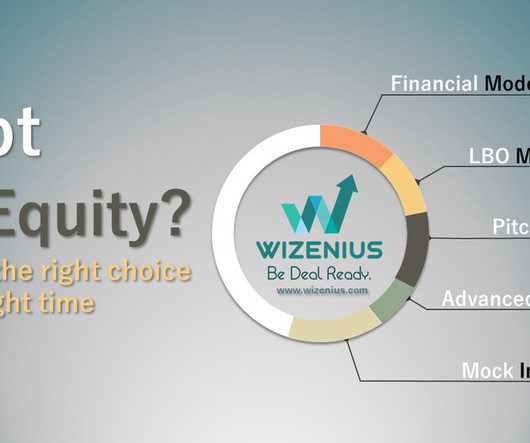Debt or Equity? Making the right choice at the right time
Wizenius
APRIL 1, 2023
When companies need to raise capital, they have two primary options: Debt involves borrowing money, while equity involves issuing shares of ownership in the company. Both options have advantages and disadvantages, and companies must carefully consider their financial situation and goals before making a decision. Let's take a look at examples of companies that raised capital through debt, and analyze the factors that influenced their decision. 1) Apple: In 2013, Apple issued a $17 billion bond to








Let's personalize your content